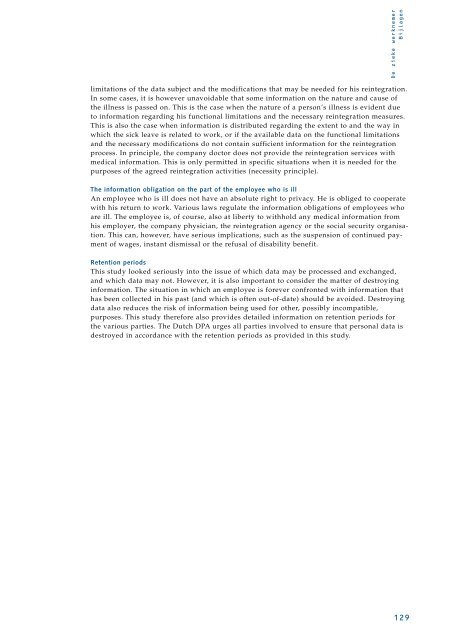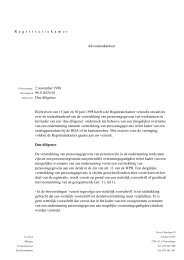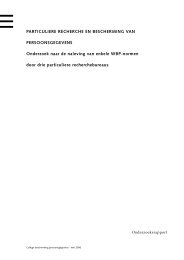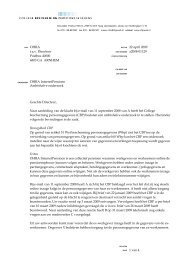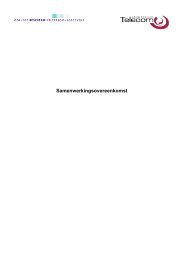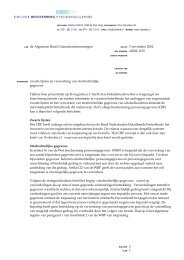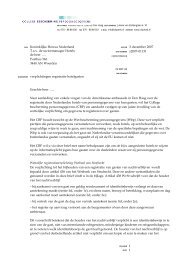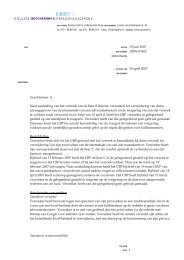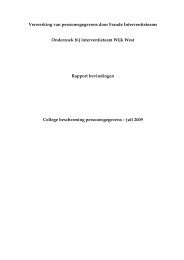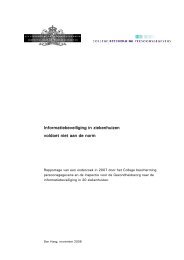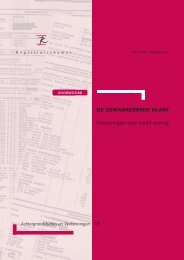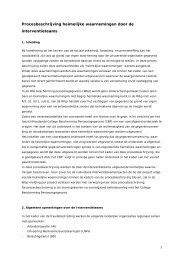De zieke werknemer en privacy - College bescherming ...
De zieke werknemer en privacy - College bescherming ...
De zieke werknemer en privacy - College bescherming ...
You also want an ePaper? Increase the reach of your titles
YUMPU automatically turns print PDFs into web optimized ePapers that Google loves.
<strong>De</strong> <strong>zieke</strong> <strong>werknemer</strong>Bijlag<strong>en</strong>limitations of the data subject and the modifications that may be needed for his reintegration.In some cases, it is however unavoidable that some information on the nature and cause ofthe illness is passed on. This is the case wh<strong>en</strong> the nature of a person’s illness is evid<strong>en</strong>t dueto information regarding his functional limitations and the necessary reintegration measures.This is also the case wh<strong>en</strong> information is distributed regarding the ext<strong>en</strong>t to and the way inwhich the sick leave is related to work, or if the available data on the functional limitationsand the necessary modifications do not contain suffici<strong>en</strong>t information for the reintegrationprocess. In principle, the company doctor does not provide the reintegration services withmedical information. This is only permitted in specific situations wh<strong>en</strong> it is needed for thepurposes of the agreed reintegration activities (necessity principle).The information obligation on the part of the employee who is illAn employee who is ill does not have an absolute right to <strong>privacy</strong>. He is obliged to cooperatewith his return to work. Various laws regulate the information obligations of employees whoare ill. The employee is, of course, also at liberty to withhold any medical information fromhis employer, the company physician, the reintegration ag<strong>en</strong>cy or the social security organisation.This can, however, have serious implications, such as the susp<strong>en</strong>sion of continued paym<strong>en</strong>tof wages, instant dismissal or the refusal of disability b<strong>en</strong>efit.Ret<strong>en</strong>tion periodsThis study looked seriously into the issue of which data may be processed and exchanged,and which data may not. However, it is also important to consider the matter of destroyinginformation. The situation in which an employee is forever confronted with information thathas be<strong>en</strong> collected in his past (and which is oft<strong>en</strong> out-of-date) should be avoided. <strong>De</strong>stroyingdata also reduces the risk of information being used for other, possibly incompatible,purposes. This study therefore also provides detailed information on ret<strong>en</strong>tion periods forthe various parties. The Dutch DPA urges all parties involved to <strong>en</strong>sure that personal data isdestroyed in accordance with the ret<strong>en</strong>tion periods as provided in this study.129


